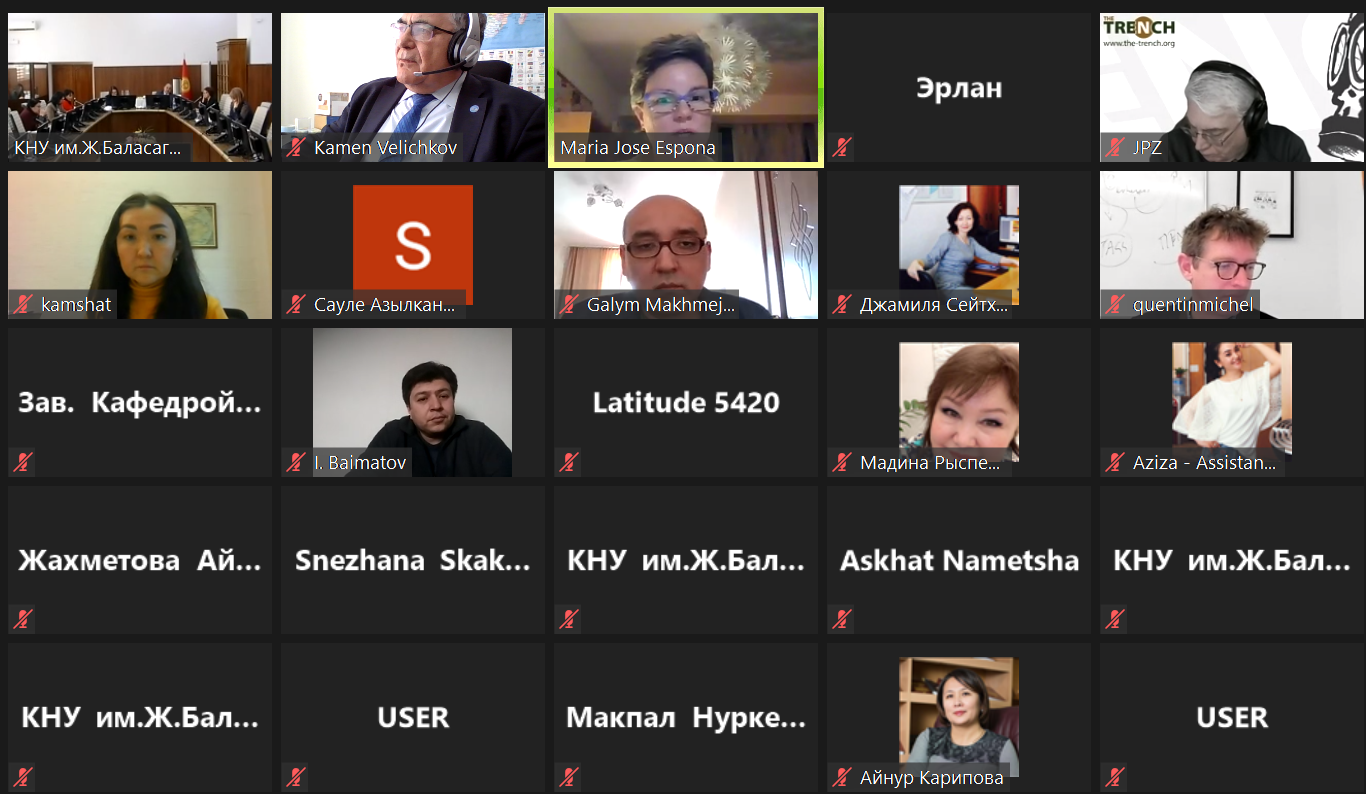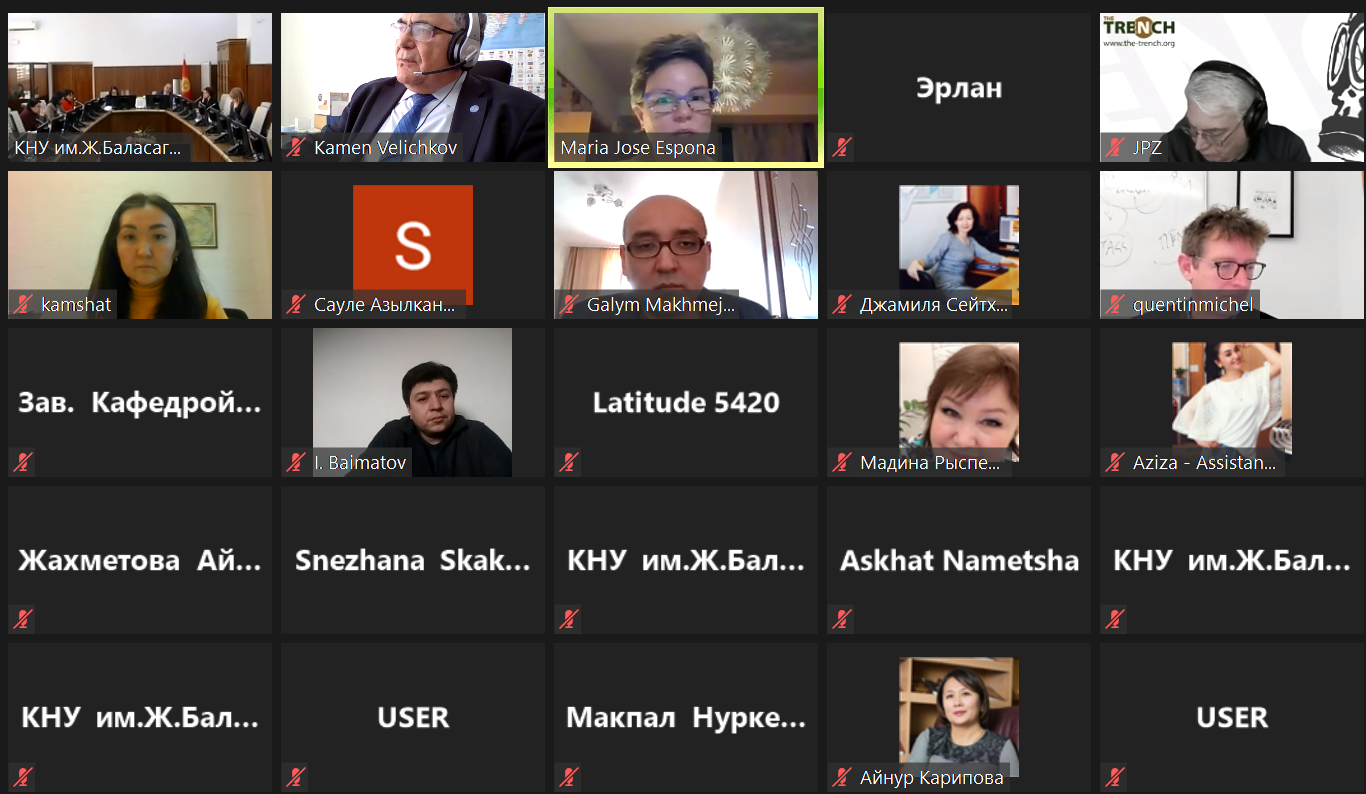TRAINING THE TRAINERS WORKSHOP ON STRATEGIC TRADE CONTROL ACADEMIC IMPLEMENTATION IN KAZAKHSTAN

 The International Science and Technology Center (ISTC) and the Central Asian Institute for Development Studies (CAIDS), in collaboration with the Department of Economics and Entrepreneurship of L. N. Gumilyov Eurasian National University (ENU), organized on 17- 18 March 2021 the online Training the Trainers Workshop under the project of Strategic Trade Control (STC) Research and Education Implementation in Kazakhstan.
The International Science and Technology Center (ISTC) and the Central Asian Institute for Development Studies (CAIDS), in collaboration with the Department of Economics and Entrepreneurship of L. N. Gumilyov Eurasian National University (ENU), organized on 17- 18 March 2021 the online Training the Trainers Workshop under the project of Strategic Trade Control (STC) Research and Education Implementation in Kazakhstan.
The workshop was designed to disseminate teaching and research skills related to Strategic Trade Control (STC) among the social scientists who hold teaching and research positions at the Eurasian National University (ENU), the Kyrgyz National University (KNU), and other organizations in Kazakhstan and Kyrgyzstan.
Initially, the welcoming speeches were delivered by Akbota Zholdasbekova, Vice-Rector for International Cooperation of ENU, Turatbek Suranaev, Vice-Rector for Administrative and Economic affairs of KNU, Kamen Velichkov, Senior Project Manager and Diplomatic Advisor, ISTC, and Dr Maria J. Espona, Targeted Initiative CBRN Export Control Dual-Use Materials and Technologies Project manager.
During the event, Dr Jean-Pascal Zanders (The TRENCH) and Professor Dr Quentin Michel from Liege University (Belgium) shared their knowledge and experience related to the research and education in STC. Dr Zanders introduced the ‘dual-use’ concept and outlined the main aspects of the governance of dual-use technologies at the international and national levels. Professor Michel introduced the topic of essential responsibilities for different categories of actors.
The lecturers also talked about the potential challenges in designing and teaching the courses on Strategic Trade Control. They reviewed existing university degree programs in this field around the world.
The workshop context encouraged over 40 attendees with new ideas in teaching and research. Young fellows discovered new opportunities in the forthcoming master program in STC at the Eurasian National University. More experienced faculty staff seized the opportunity to learn current research topics in this field. The participants also discussed the new horizons and perspectives for future collaboration and networking among the Central Asia universities through Strategic Trade Control academic proliferation.

